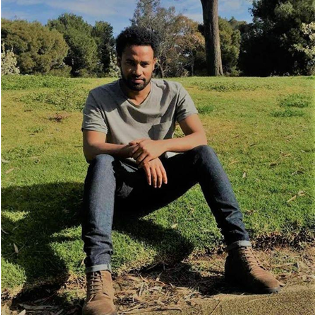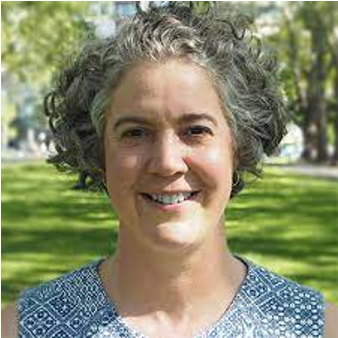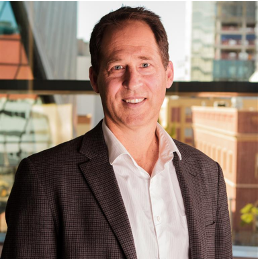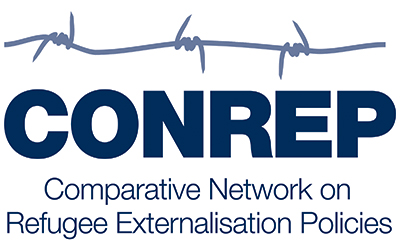Refugee and Migration Policy: How to partner with and influence policymakers
The Australian Sociological Association (TASA) MEM’s Conversations About... Refugee and Migration Policy
About this event
Within the contemporary research landscape there is increased emphasis on research demonstrating industry relevance or societal application. Moving beyond personal interests or human curiosity – research is increasingly expected to help address real world problems or contribute to work being done by industries that might sit outside of traditional academia. Research degree students are encouraged to partner with end-users of their research to help address globally significant issues and demonstrate future career relevance. Many early-career researchers are also seeing their future employment not in academia, but within industry; either through think-tanks, not-for-profit agencies, or government. In working towards this relationship in a meaningful way, how do we navigate the role of migration, ethnicity, and multiculturalism research with industry? How can we support the role of research to advocate for societal change appropriately? Within this session we will hear from researchers, industry partners, and postgraduate students who have worked within this space, navigated these relationships, and applied their research meaningfully in order to help address many global and societal issues today. This session is focused on helping provide practical tips and advice for PhD / HDR candidates and early career researchers on how they can meaningfully engage with industry at various stages of their research journey.
Key questions
- How can we meaningfully engage with industries involved in migration policy for research?
- What should PhD/ECRs know about working with/alongside industry partners?
- How can we structure our research projects and research outputs to ‘speak’ to policy? How do we speak ‘the language’?
- How do we navigate the role and relationship between research in advocacy and policy development? And vice versa?
- How to network with policy/NFP sectors in supporting migrants from a diversity of backgrounds
- How can we best tailor our resumes to demonstrate we are employable within the non-academic sector?
Speakers
Goshu Tefera is a PhD candidate at Monash University. His recently submitted thesis explored the displacement, transit and settlement experiences of Ethiopian refugees in Australia. Currently he is working as a Strategic Partnerships Coordinator for a Victoria Government-funded program that aims to support settlement and inclusion of multicultural communities, hosted by LaTrobe Community Health Services. Goshu’s research focuses on refugee and migrant background communities who are often marginalised and disadvantaged in multiple and complex ways. As a person from a migrant background himself, he relates to some of their plights and working with these communities provides him with a sense of purpose and motivation
displacement, transit and settlement experiences of Ethiopian refugees in Australia. Currently he is working as a Strategic Partnerships Coordinator for a Victoria Government-funded program that aims to support settlement and inclusion of multicultural communities, hosted by LaTrobe Community Health Services. Goshu’s research focuses on refugee and migrant background communities who are often marginalised and disadvantaged in multiple and complex ways. As a person from a migrant background himself, he relates to some of their plights and working with these communities provides him with a sense of purpose and motivation
Annabel Brown is a Program Director at the Centre for Policy Development. She has had oversight  of programming and policy development related to: forced migration and settlement; employment and economic participation; and service system reform and place-based approaches. She is an experienced advisor and facilitator with over 20 years of experience supporting effective social and economic development in Australia and the Asia-Pacific. Annabel has particular expertise leading research and evaluation projects focused on understanding policy influence, advocacy, leadership development, governance, accountability and empowerment. She is passionate about generating knowledge, through collaborative processes, and using that to improve policy and practice
of programming and policy development related to: forced migration and settlement; employment and economic participation; and service system reform and place-based approaches. She is an experienced advisor and facilitator with over 20 years of experience supporting effective social and economic development in Australia and the Asia-Pacific. Annabel has particular expertise leading research and evaluation projects focused on understanding policy influence, advocacy, leadership development, governance, accountability and empowerment. She is passionate about generating knowledge, through collaborative processes, and using that to improve policy and practice
Dr David Radford is Senior Lecturer (Sociology) and Research Degree Coordinator, UniSA Justice and Society. David investigates migration, diversity and interculturality in regional and urban Australia. His research emphasises the importance of the micro, everyday lived experiences of migration and interculturality while drawing on macro factors impacting these experiences. David’s present research projects include exploring the impact and contributions of refugee-background migrants in society and the role of refugee parents’ educational aspirations on their children’s academic outcomes. David has previously researched the role of local government leadership in managing/promoting diversity, and the complex ways that Hazara negotiate their multiple identities as ‘Aussie Afghans’. Previous research included the role of globalisation, innovation and experimentation in the transformation of global airports (Areomobilities) and its impact on mobile lives, as part of Professor Anthony Elliott and Professor John Urry’s ARC Discovery Project. David’s previous positions included Senior Research Fellow, Hawke Research Institute, UniSA, and Lecturer (International Relations), Flinders University, with a focus on the Middle East and Central Asia
interculturality while drawing on macro factors impacting these experiences. David’s present research projects include exploring the impact and contributions of refugee-background migrants in society and the role of refugee parents’ educational aspirations on their children’s academic outcomes. David has previously researched the role of local government leadership in managing/promoting diversity, and the complex ways that Hazara negotiate their multiple identities as ‘Aussie Afghans’. Previous research included the role of globalisation, innovation and experimentation in the transformation of global airports (Areomobilities) and its impact on mobile lives, as part of Professor Anthony Elliott and Professor John Urry’s ARC Discovery Project. David’s previous positions included Senior Research Fellow, Hawke Research Institute, UniSA, and Lecturer (International Relations), Flinders University, with a focus on the Middle East and Central Asia
Event details
Date: 26 May 2021
Time: 9.30am-11.00am (ACST)/10.00am-11.30 (AET)
Contact: Sarah B. Faulkner, UniSA Justice and Society
Collaborations: CONREP; The Australian Sociological Association (TASA) Migration, Ethnicity and Multiculturalism (MEM) Thematic Group; with support from the University of South Australia.


